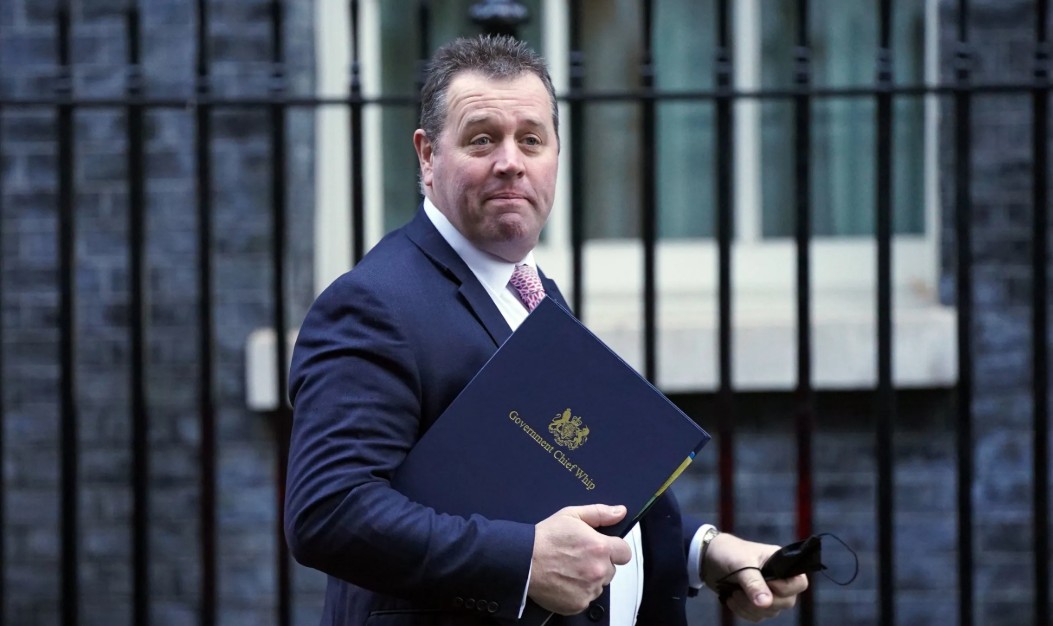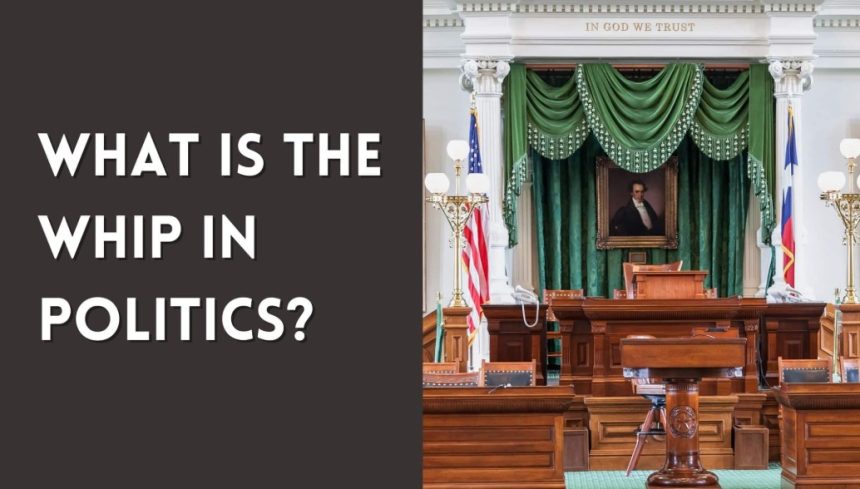In the intricate world of UK politics, many are left wondering: What is the Whip in Politics? This seemingly modest title belies the profound influence the whip has on political dynamics within Parliament. As a crucial force for maintaining party unity and steering legislative processes, the whip’s role extends far beyond merely managing votes. In this comprehensive blog post, we delve deep into the history, responsibilities, and evolving significance of the whip in modern British politics, offering readers at uknewsblog.co.uk an up-to-date and in-depth exploration of this pivotal political mechanism.
Introduction: The Backbone of Parliamentary Order
At the heart of every successful political party in the UK lies a well-organised strategy, and no role is more central to that than the whip. In an environment where parliamentary debates and votes decide the fate of national policies, the whip ensures that party members remain aligned with their leadership’s objectives. This role is indispensable in fostering both discipline and flexibility within parties, especially when navigating contentious issues and crises. By understanding what Is the Whip in Politics, one gains insight into the mechanisms that maintain order and direction in Westminster.
What Is the Whip in Politics?
This question forms the cornerstone of our discussion. The whip is an official whose primary duty is to ensure that members of Parliament (MPs) vote in line with their party’s policies. This role includes:

- Managing Attendance and Voting:
The whip monitors MP attendance and ensures participation in crucial votes. - Facilitating Communication:
Acting as a liaison between party leadership and MPs, the whip conveys essential information about policies and upcoming parliamentary sessions. - Resolving Internal Conflicts:
Through mediation and negotiation, the whip helps to resolve disputes and maintain a unified party stance.
By fulfilling these functions, the whip not only influences immediate legislative outcomes but also contributes to the broader strategic direction of the party.
How Does the Whip Ensure Party Discipline in the UK?
The influence of the whip extends beyond mere vote counting. Let’s consider this critical question:
How does the whip keep the party together during contentious debates and critical votes?
The whip employs a combination of persuasive negotiation, strategic communication, and, if necessary, disciplinary measures to ensure that every MP adheres to the party line. This cohesive approach is vital for passing legislation and managing political crises.
Strategic Voting and Unity:
- The whip coordinates votes to create a unified front, ensuring that transformative legislation is passed even amid internal disagreements.
- A well-organised voting bloc discourages external opposition by showcasing solidarity and discipline.
Crisis Management in Critical Votes:
- During high-stakes votes, the whip’s rapid response and communication strategies become essential.
- Last-minute negotiations and adjustments in party stance often prevent potential breakdowns in the legislative process.
Historical Perspective: The Evolution of the Whip

Understanding the modern role of the whip requires a glance at its historical roots. Initially, the position evolved to manage disparate groups of MPs, ensuring coordinated voting in a rapidly expanding parliamentary system. Over the decades, the role has transformed from a basic enforcer of discipline to a sophisticated mediator and strategist. Today, the whip utilises digital tools to track attendance and vote trends, making the role more dynamic and responsive than ever before.
Comparative Analysis: Whip Roles in Government vs. Opposition
To illustrate the nuanced roles played by whips on both sides of the political spectrum, consider the following table summarising current trends and responsibilities in early 2025:
| Aspect | Government Whip | Opposition Whip |
| Primary Focus | Ensuring legislative success and advancing policy initiatives | Challenging government decisions and promoting alternative agendas |
| Communication Strategy | Direct, top-down messaging to secure quick vote mobilisation | Coordinated messaging to rally dissent and articulate counter-views |
| Crisis Management | Rapid response to maintain cohesion during pivotal votes | Strategically highlighting government shortcomings during debates |
| Voting Enforcement Techniques | Combination of persuasive negotiation and disciplinary measures | Emphasis on persuasion and negotiation to consolidate opposition votes |
| Recent Technological Innovations (2025) | Digital attendance tracking, automated alert systems, and real-time vote monitoring | Leveraging social media for coordinated campaigns and public engagement |
What is the Impact of Whip on Policy and Public Perception?
The Broader Impact on Legislation

The role of the whip directly affects how policies are shaped and implemented:
- Legislative Efficiency:
A well-organised whip system reduces delays in voting, ensuring that legislative processes run smoothly. - Policy Cohesion:
By keeping MPs aligned, the whip fosters a consistent policy approach, minimising the risk of fragmented or contradictory legislation.
Public Perception and Political Accountability
The whip’s actions often influence public perception of a political party:
- Media Spotlight:
High-profile interventions by the whip in internal conflicts attract media attention, which can significantly impact public trust. - Voter Confidence:
A disciplined party is generally seen as more reliable and capable of governing, thereby boosting voter confidence.
Conclusion: The Hidden Power Behind UK Politics
Understanding What Is the Whip in Politics? Provides crucial insights into the mechanisms that sustain UK political stability and legislative efficiency. The whip’s role—as an enforcer, mediator, and strategic planner—is central to the functioning of both the government and opposition. By maintaining discipline and coordinating votes, the whip ensures that the legislative process remains streamlined, even amid internal challenges.
For our readers at uknewsblog.co.uk, gaining a deeper understanding of the whip not only illuminates how political decisions are orchestrated behind closed doors but also underscores the importance of every vote and policy debate in shaping the nation’s future. As British politics continues to evolve, staying informed about these key mechanisms remains essential for comprehending the broader dynamics of power in the United Kingdom.
FAQs: Deep Dive into the Role of the Whip
What Is the Whip in Politics?
The whip is a key parliamentary figure responsible for ensuring that party members vote according to the party’s strategy. They facilitate communication, enforce discipline, and mediate internal disagreements to maintain a unified stance.
Why is the whip critical in the UK political system?
The whip is essential for achieving legislative success. By managing votes and resolving internal conflicts, they ensure that the party can efficiently implement its policy agenda, a crucial factor for maintaining stable governance.
How does the whip balance enforcement with mediation?
The whip utilises a blend of negotiation, persuasive communication, and, when necessary, disciplinary measures to maintain party cohesion while allowing room for internal debate.
What recent innovations have impacted the whip’s role?
Recent advancements include digital attendance tracking and real-time vote monitoring systems, which have enhanced the whip’s ability to manage MPs effectively during critical votes.






